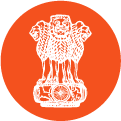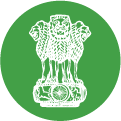Candidates should start studying for the INET exam as soon as possible without waiting for the notification. Let's look at some of the crucial INET preparation tips:
- To understand the general format of the exam, applicants must first concentrate on comprehending the exam pattern.
- Candidates must consult the syllabus after reviewing the exam format to determine the topics they must master before the INET exam.
- Candidates must also determine the relative importance of each topic and concentrate on it.
- Candidates must plan their study schedule and adhere to it diligently.
- To cover all the topics, adopt a comprehensive strategy.
- Solve previous years' question papers
- Clear fundamental ideas and attempt mock tests to determine your strengths and weaknesses.
To prepare better for the INET entrance test and become successful, you will need to focus on the following aspects:
1. Without a Proper Plan, there is no Success: The INET exam is undoubtedly rigorous, and its syllabus is vast. Having a plan is essential valid such a scenario, as is true with any other reputable entrance exam. You do not need to spend 9-10 hours on studies one day and then lose out on the routine. The focus should be on ensuring the quality of concepts grasped rather than the number of questions answered. A daily plan with specific hours devoted to each subject introduces discipline – the superior quality expected from defence personnel.
2. Time Management is of utmost Importance: While solving the mock tests during preparations, keep track of your time using a stopwatch or mobile. Remember to attempt 100 questions in the exam (25 per section) in 2 hours (120 minutes), and you cannot invest more than 72 seconds on a question. If you start managing your time, keeping this aspect in mind, your speed will automatically improve.
3. Practice, Practice and more Practice: All this preparation and going through the course syllabus will not be fruitful until and unless you practice by taking online mock tests regularly. Mock tests help you maintain the rhythm and discipline expected during an actual INET exam. Aim to take a mock test every day once you finish the course syllabus. Do refer to reputed websites and course materials that offer mock practice tests. Solving mock tests from different sources will prepare you for the varying difficulty levels that you may find on examination day.
4. Finish your Syllabus well before the Examination: As a best practice, try to finish your syllabus at least 3-4 weeks before the examination date. It will have multiple benefits. First, it will give you the inherent confidence of being aware of all the subjects to be assessed in the examination. Second, you will have enough time to practice mock tests and sample papers to get you into the exam routine. Third and most important, it will reduce your nervousness about facing the examination. Having a positive and confident mindset does wonder for your test-taking ability.
5. Don't Attempt Questions you are not Confident of: There is a big difference between an intelligent and a random guess. In a rush, you may be bound to select options you are not confident of. However, be aware that each wrong answer will lead to a deduction of 1 mark. Instead of boosting your score, guesswork and speculations will reduce your scores drastically. So, plan your attempts intelligently and avoid guesswork at all costs.
6. Solve Reasoning Questions with Logic: It may be confusing and, at times, time-consuming, but reasoning questions can be mastered by practising them regularly. It is essential to have your concepts clear and solve them as if you are playing a mind game or a puzzle. Once you get to the crux of these reasoning questions, you will be able to solve them in no time.
7. Remember the Math Formulae: Having the formulae hardcoded in your brain will come in handy during the exams when there is limited time and many questions to answer. Start memorising the important math formulae by writing them down or Keeping them in front of you while studying. In this way, the formulae will get subconsciously ingrained inside your mind, and you will easily be able to recall them whenever required.
8. Master the Nuances of English Grammar and Vocabulary: You cannot master the English language by memorizing only. You will need to use the words in your daily conversations and writing habitually. Refer to well-recommended books on English grammar and vocabulary. Practice at least ten words daily with your friends and family to gain confidence and the nuances of their usage. This routine will help you with the INET exam and your professional life in the future.
9. Keep Up to Date with Current Affairs: General Knowledge is the only section in the INET exam which can boost your overall scores immensely if you have a good grasp of what's happening around you. The best part is that no calculations or estimations are involved, so you can save a lot of time while scoring on these questions. Inculcate a habit of scanning daily newspapers, magazines, journals, and online news sites to be well-versed with current affairs.
10. Work on your Weak Sections: INET exam can be cracked only if you clear all sectional cut-offs. One cannot be expected to be strong in all sections and subjects. Thus, as a candidate, it is imperative to introspect and find out which are the sections where you do not feel confident, unlike others. Once this is sorted, you need to make extra efforts to target performance improvement in those sections.
11. A little Smartness Always Helps: If you observe the pattern from INET 2019, the minimum overall passing marks were 50% (Score of 200 out of 400), while the minimum sectional cut-off marks were 40% (Score of 25 out of 100 in each section). Given that the INET was conducted for the first time and not many candidates were aware of the strategies, it would be wise to consider that a score of 200+ with individual sections cleared would be enough to qualify for the exam. To make the cut, you need not solve all 100 questions but around 60-70 questions across departments. It is now upon you to strategise on which questions to solve and which ones to avoid.





